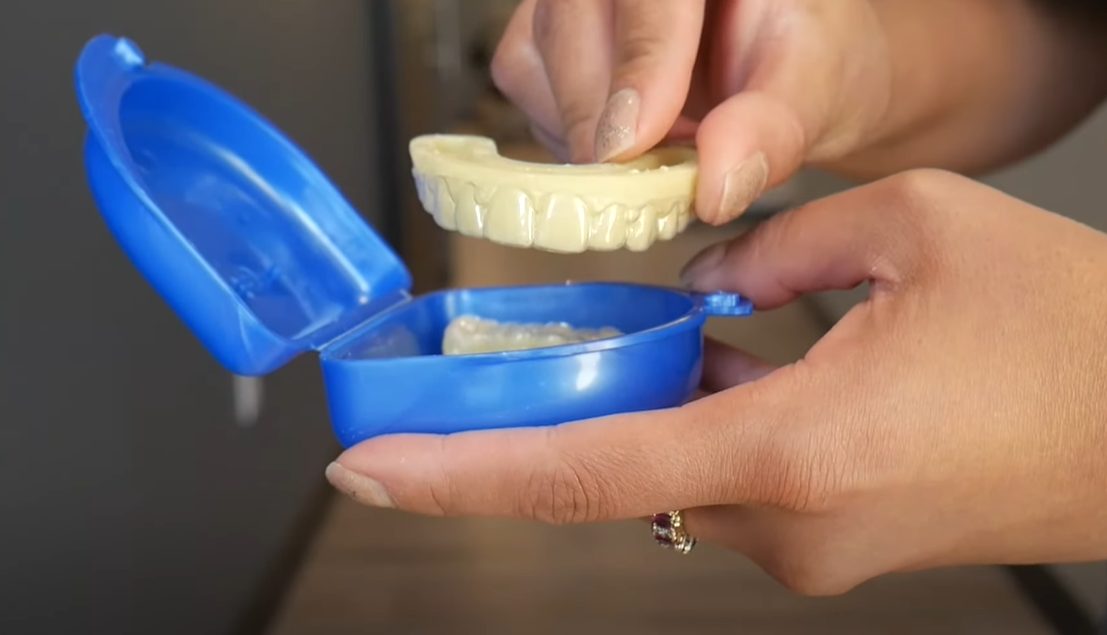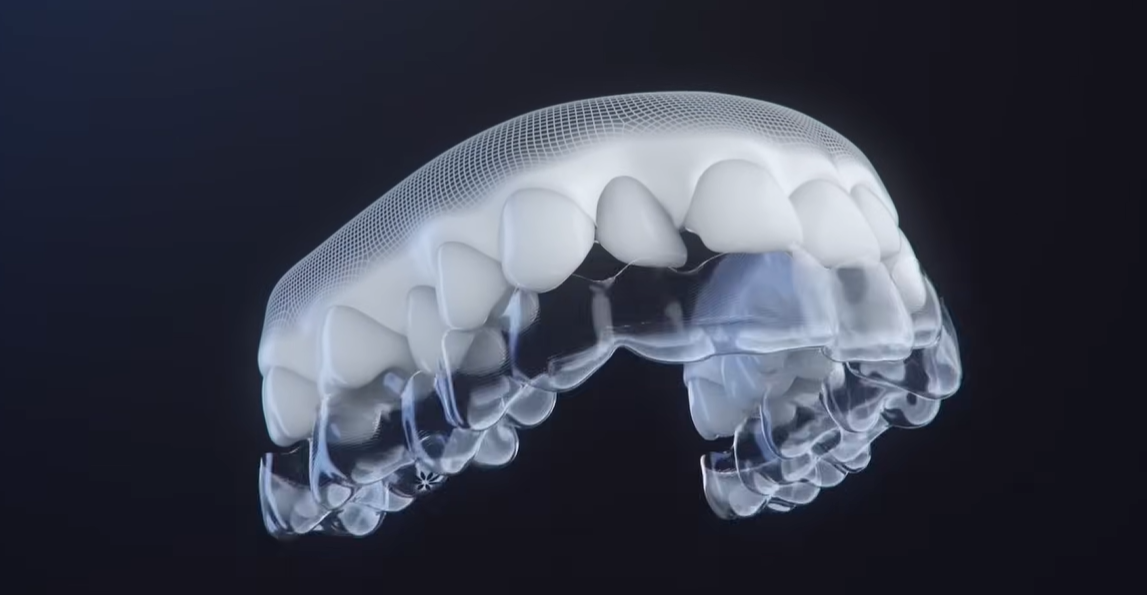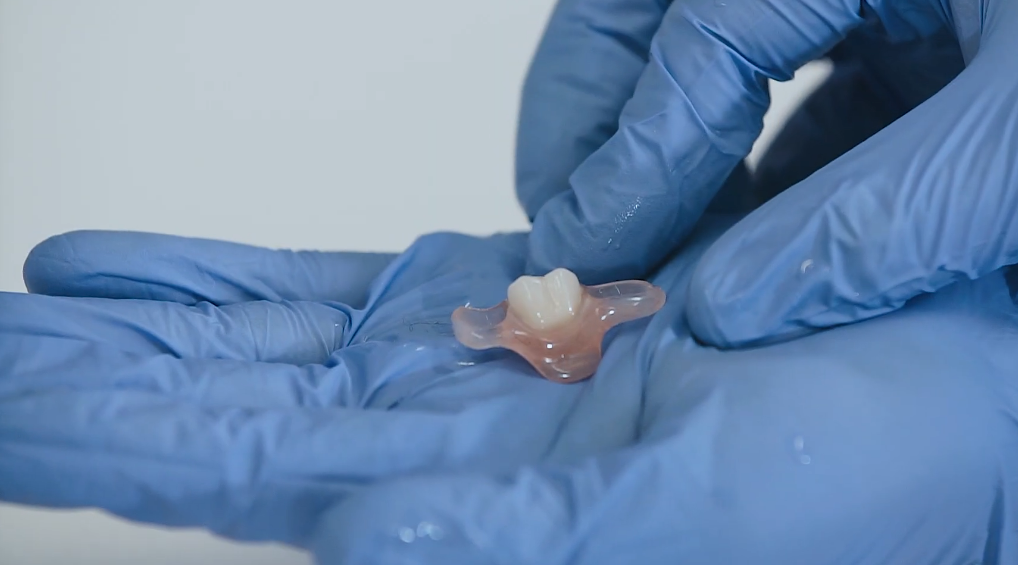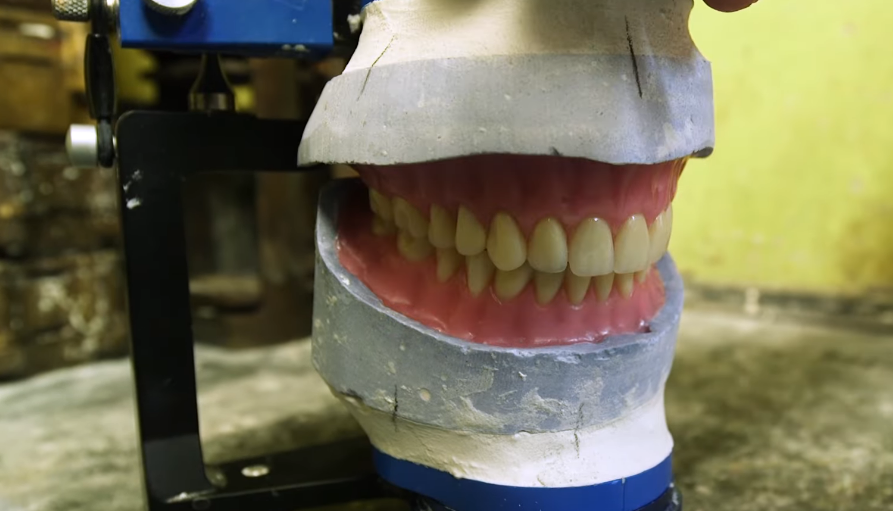If you buy through links on our site, we may earn a small affiliate commission to help support the blog - at no extra cost to you. It never influences our product selection process. Thank you!
Are you struggling with persistent bad breath that won’t go away no matter how many mints you pop or how often you brush? A halitosis dentist might be the solution you’ve been searching for. These specialized dental professionals are specifically trained to identify and treat the root causes of chronic bad breath.
When regular oral hygiene isn’t enough, it’s time to seek expert help. Halitosis dentists use advanced diagnostic techniques to determine whether your bad breath stems from oral conditions, systemic health issues, or lifestyle factors. They don’t just mask the problem—they solve it at its source, giving you back your confidence and peace of mind.
What Is Halitosis and Why Is It a Dental Concern?
Halitosis refers to chronic bad breath that persists even after brushing, flossing, and using mouthwash. Unlike temporary bad breath from consuming certain foods, halitosis doesn’t disappear with routine oral hygiene practices. Medical professionals categorize halitosis as a condition that affects approximately 25% of the global population, making it a common dental concern.
The oral cavity houses millions of bacteria that break down food particles, releasing volatile sulfur compounds (VSCs) that cause the unpleasant odor associated with bad breath. These bacteria primarily reside on the tongue’s surface, between teeth, and below the gumline where they multiply and produce malodorous gases. When bacterial levels become excessive due to poor oral hygiene, gum disease, or other factors, persistent halitosis develops.
“I’ve treated patients who’ve spent hundreds of dollars on breath mints and mouthwash without addressing the underlying cause of their halitosis,” explains Dr. Todd B. Harris. “One patient avoided social situations for years before discovering her chronic bad breath stemmed from undiagnosed periodontal disease that required professional treatment.”
Dentists consider halitosis a important concern because it frequently indicates underlying oral health issues such as:
- Periodontal disease – bacteria-filled pockets around teeth release sulfur compounds
- Dry mouth – reduced saliva flow prevents natural cleansing of oral tissues
- Tooth decay – cavities harbor bacteria that produce foul odors
- Oral infections – abscesses or infections create environments for odor-causing bacteria
- Tongue coating – bacterial biofilm on the tongue surface contributes to bad breath
Beyond oral causes, halitosis sometimes signals serious systemic conditions including diabetes, kidney disease, liver problems, and respiratory infections. This connection between oral odor and overall health highlights why dentists take halitosis seriously rather than dismissing it as merely a social embarrassment.
The Role of a Halitosis Dentist in Treating Bad Breath
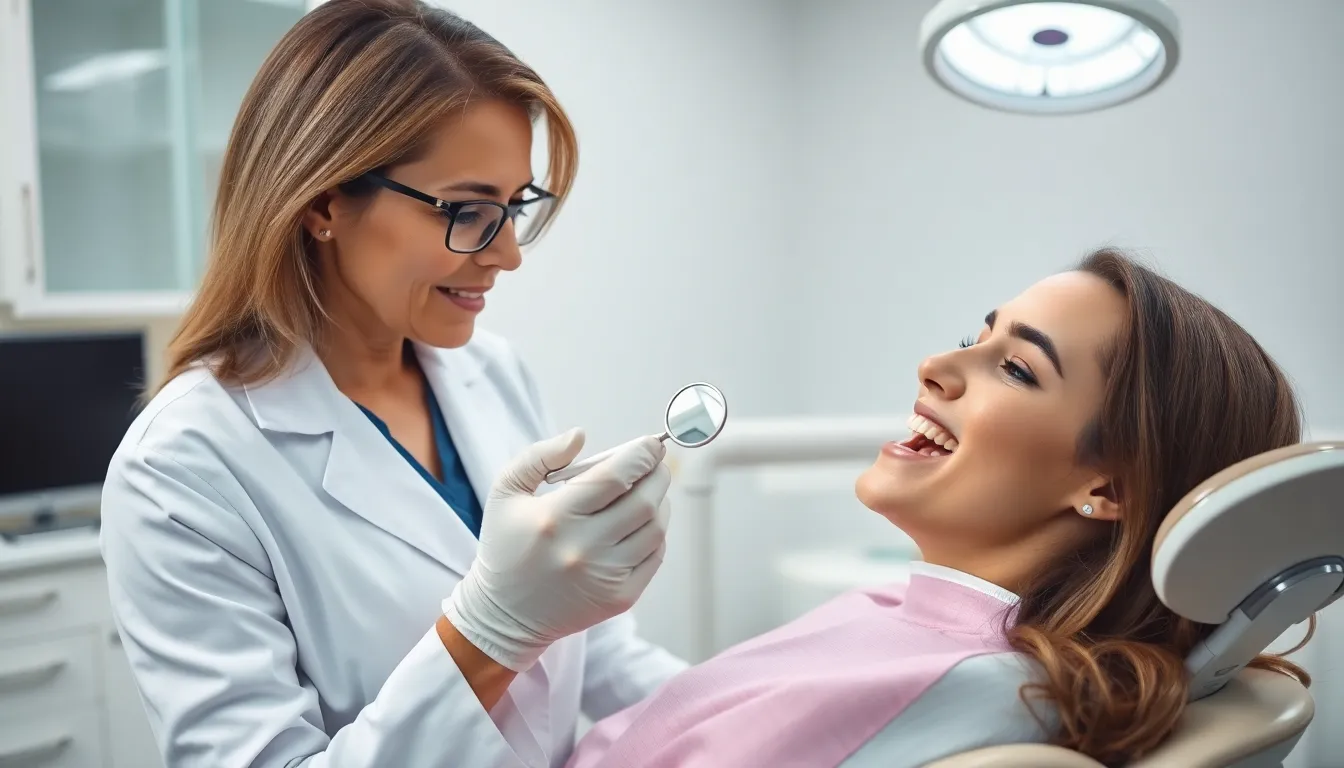
A halitosis dentist specializes in addressing persistent bad breath issues through targeted diagnosis and treatment approaches. These dental professionals focus on identifying root causes rather than simply masking symptoms, offering long-term answers for patients struggling with chronic halitosis.
Specialized Training and Expertise
Halitosis dentists possess focused knowledge in diagnosing and managing bad breath conditions that stem from various oral health issues. They’re extensively trained to understand the microbiological causes of halitosis, including how bacteria produce volatile sulfur compounds that create unpleasant odors. Their expertise extends to recognizing how plaque buildup, gum disease, and tooth decay contribute to persistent bad breath problems. While general dentists commonly treat halitosis cases, specialists such as periodontists often become involved when severe gum disease is identified as the primary factor. These professionals stay current with advanced treatment protocols specifically designed to address the bacterial sources of oral malodor.
Diagnostic Approaches Used by Halitosis Specialists
Halitosis specialists employ comprehensive diagnostic methods to identify the exact source of bad breath. Your initial consultation typically begins with a detailed health history review followed by a thorough oral examination that assesses potential odor sources. Dentists carefully inspect your entire mouth for signs of infection, excessive plaque, tartar buildup, and decay that might contribute to halitosis. The diagnostic process often includes:
- Comprehensive oral examinations checking for inflammation, plaque, and tartar
- Microbial testing to identify exact odor-causing bacteria
- Evaluation of saliva production levels, as dry mouth significantly worsens halitosis
- Assessment of tongue coating, which harbors odor-producing bacteria
When no oral cause can be identified, halitosis dentists refer patients to medical doctors to investigate potential systemic conditions like diabetes, kidney problems, or respiratory infections that might contribute to bad breath. Treatment approaches focus on addressing these underlying causes through professional dental cleanings, specialized antimicrobial mouthwashes, gum disease treatment, and personalized oral hygiene recommendations. Therapeutic rinses prescribed by halitosis specialists target odor-causing bacteria rather than simply masking breath temporarily like commercial products do.
Common Causes of Halitosis Your Dentist Will Identify
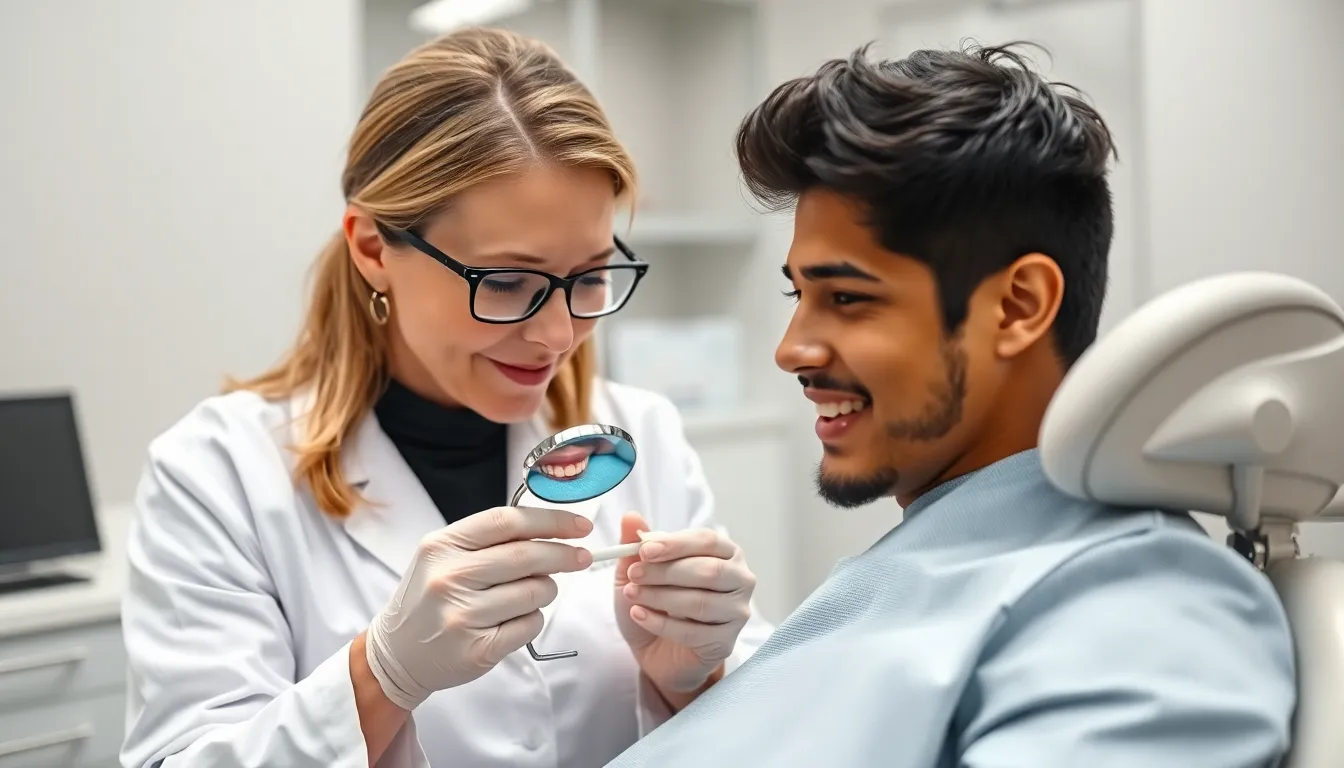
Dentists play a crucial role in diagnosing and addressing halitosis by identifying its root causes. Through comprehensive examination techniques, they’re able to determine whether your bad breath stems from oral factors or indicates other health concerns.
Oral Hygiene Issues
Poor oral hygiene stands as the most common cause of halitosis that dentists identify during examinations. Bacteria naturally accumulate on your tongue, teeth, and gums when brushing and flossing are inadequate, producing volatile sulfur compounds (VSCs) that create unpleasant odors. These bacteria thrive particularly well on the tongue’s surface, forming a coating that harbors odor-causing microorganisms. Many patients don’t realize that dry mouth contributes significantly to bad breath by reducing saliva flow, which normally helps wash away food particles and neutralize acids produced by bacteria. Dr. Harris often shares that “patients are surprised to learn their morning breath results from decreased saliva production during sleep, creating the perfect environment for bacteria to multiply.”
Underlying Dental Problems
Dental conditions frequently contribute to persistent halitosis and require professional intervention. Periodontitis, an advanced form of gum disease, creates pockets between teeth and gums where bacteria proliferate and generate foul odors. Tooth decay provides ideal hiding spots for bacteria in cavities and crevices, while untreated oral infections release compounds that cause distinctive bad breath. Dentists discover these issues through thorough examinations, often finding that treating the underlying dental problem eliminates halitosis completely. Recently, a patient came in complaining of persistent bad breath even though rigorous brushing and mouthwash use – examination revealed early-stage periodontal disease that, once treated, resolved both the gum inflammation and the halitosis symptoms.
Treatment Options Offered by Halitosis Dentists

Halitosis dentists provide specialized treatments that address the root causes of chronic bad breath rather than just masking symptoms. These dental professionals use a comprehensive approach that targets both the oral bacteria causing odors and any underlying conditions contributing to halitosis.
Professional Dental Cleanings
Professional dental cleanings form the cornerstone of halitosis treatment by removing plaque and tartar that harbor odor-causing bacteria. During these cleanings, your dentist reaches areas impossible to clean at home, effectively reducing bacterial populations that produce volatile sulfur compounds. Periodontal treatments like scaling and root planing specifically target bacteria below the gumline, eliminating a major source of persistent bad breath. Many patients experience important improvement after these deep cleanings, as the removal of bacterial reservoirs directly addresses the primary cause of halitosis.
Specialized Mouthwashes and Products
Your halitosis dentist might prescribe antimicrobial mouth rinses that specifically target and eliminate odor-producing bacteria. These specialized rinses work more effectively than over-the-counter options by addressing the microbial imbalance in your mouth. Products that stimulate saliva production are particularly valuable since saliva naturally neutralizes acids and washes away bacteria responsible for bad breath. Artificial saliva substitutes offer relief for patients with chronic dry mouth conditions. Probiotic treatments represent another advanced option, helping to rebalance the oral microbiome by promoting beneficial bacteria that crowd out the harmful, odor-producing varieties.
Personalized Treatment Plans
Halitosis dentists create individualized treatment strategies based on your exact oral condition and the underlying causes of your bad breath. These customized plans often incorporate advanced treatments like laser therapy, which precisely targets bacteria in difficult-to-reach areas, and professional tongue scraping to remove bacterial buildup more effectively than home methods. Your treatment plan might also include dietary recommendations and lifestyle modifications that support long-term breath freshness. For cases where halitosis stems from systemic health issues, your dentist collaborates with medical doctors to ensure comprehensive care. Dr. Todd B. Harris often notes that the most successful halitosis treatments combine professional interventions with customized home care routines, creating a multi-faceted approach that addresses all contributing factors simultaneously.
When to Seek Help From a Halitosis Dentist

Persistent Bad Breath Even though Good Oral Hygiene
Persistent bad breath that continues throughout the day even after regular brushing and flossing signals it’s time to consult a halitosis dentist. This ongoing condition often indicates deeper issues that regular oral care can’t resolve. Many patients report trying many over-the-counter products without success before seeking professional help. Your dentist can identify if the persistent odor stems from oral bacteria, gum disease, or other dental conditions requiring targeted treatment.
Warning Signs That Require Professional Evaluation
Several accompanying symptoms alongside bad breath warrant immediate dental attention. These warning signs include dental pain, swollen or bleeding gums, trouble swallowing, and dry mouth. Loose teeth, thick saliva, white or yellow coating on the tongue, persistent cough, post-nasal drip, or sore throat appearing with halitosis also indicate the need for professional evaluation. Dr. Todd B. Harris notes, “I’ve treated many patients who initially dismissed their bad breath as minor, only to discover it was signaling important gum disease that required prompt intervention.”
How to Test for Halitosis at Home
A simple self-assessment can help determine if you’re experiencing halitosis. Try this straightforward at-home test: lick the back of your hand or your wrist, wait for the saliva to dry for about 5-10 seconds, then smell the area. A noticeable foul odor suggests halitosis and indicates you should schedule a dental appointment. This test isn’t definitive but provides a useful preliminary indicator of breath issues.
What Happens During a Halitosis Dental Visit
Your initial consultation with a halitosis dentist includes a comprehensive review of your medical and dental history. The dentist asks about the onset, frequency, and severity of your bad breath, along with questions about your oral hygiene habits, diet, medications, and other health conditions. A thorough examination follows, investigating your teeth, gums, tongue, and throat for signs of infection or disease. If no dental cause emerges, your dentist may refer you to a primary care provider to evaluate potential medical conditions contributing to halitosis.
Preventing Bad Breath: Tips From Halitosis Specialists

Halitosis specialists emphasize several proven strategies to prevent bad breath effectively. Consistent oral hygiene practices form the foundation of any successful prevention plan, targeting the bacteria that produce odor-causing sulfur compounds.
Maintain Thorough Oral Hygiene
Daily oral care routines significantly reduce your risk of developing halitosis. Brushing your teeth at least twice daily removes plaque and food particles that contribute to unpleasant odors. Flossing once daily cleans between teeth where bacteria commonly accumulate and toothbrushes can’t reach. Regular tongue cleaning is especially important since most bad breath bacteria reside on the tongue surface. Patients with dentures should clean them thoroughly and remove them at night to prevent bacterial buildup.
Use Antimicrobial Mouth Rinses
Antimicrobial mouthwashes target and reduce the bacteria responsible for bad breath. Many halitosis dentists recommend exact therapeutic rinses based on your individual needs and the severity of your condition. These products complement brushing and flossing rather than replacing them.
Stay Hydrated
Drinking plenty of water creates an environment in your mouth that’s less hospitable to odor-causing bacteria. Adequate hydration prevents dry mouth, a common condition that allows bacteria to thrive and produce unpleasant odors. Keeping a water bottle with you throughout the day encourages regular sipping and maintains optimal oral moisture levels.
Optimize Your Diet
Your food choices directly impact breath freshness. Crunchy fruits and vegetables naturally clean teeth while stimulating saliva production. Yogurt contains beneficial bacteria that can help neutralize odor-causing compounds. Foods rich in vitamins C and D support overall oral health and may reduce halitosis. Conversely, you’ll want to limit consumption of breath-offending foods like onions, garlic, cabbage, and coffee.
Avoid Tobacco Products
Tobacco use significantly contributes to persistent bad breath. Smoking not only causes its own distinctive odor but also dries out oral tissues and increases your risk of gum disease. Quitting tobacco products improves breath freshness and boosts overall oral health.
Additional Prevention Strategies
Chewing sugarless gum stimulates saliva production, which naturally cleanses the mouth and helps prevent bad breath. Scheduling regular dental check-ups allows for professional cleaning and personalized advice from halitosis specialists who can identify potential issues before they worsen.
Conclusion
Don’t let chronic bad breath control your life any longer. A halitosis dentist offers specialized expertise beyond regular dental care to identify and treat the root causes of your persistent bad breath.
With advanced diagnostic techniques and customized treatment plans they can address everything from oral health issues to potential systemic conditions affecting your breath.
Remember that proper oral hygiene practices including tongue cleaning regular hydration and smart dietary choices play crucial roles in prevention. But when self-care isn’t enough seeking professional help is your best path to fresh breath and improved confidence.
Take that first step toward lasting freshness by scheduling an appointment with a halitosis specialist today. Your social life and overall health will thank you.
Frequently Asked Questions
What is halitosis?
Halitosis is chronic bad breath that persists even after regular brushing, flossing, and using mouthwash. It affects approximately 25% of the global population and is primarily caused by bacteria in the mouth that break down food particles and release volatile sulfur compounds (VSCs), creating an unpleasant odor.
How is a halitosis dentist different from a regular dentist?
A halitosis dentist specializes in diagnosing and treating persistent bad breath. Unlike regular dentists, they have specialized training in identifying the microbiological causes of halitosis, perform more comprehensive testing, and focus on treating the root causes rather than just masking symptoms. They also collaborate with medical doctors when systemic health issues are suspected.
What are the main causes of halitosis?
The main causes of halitosis include poor oral hygiene, gum disease (periodontitis), dry mouth (xerostomia), tooth decay, tongue coating, and oral infections. Systemic conditions like diabetes, kidney disease, liver problems, and respiratory infections can also contribute to bad breath. Inadequate brushing and flossing allow bacteria to accumulate and produce odor-causing compounds.
How do halitosis dentists diagnose bad breath?
Halitosis dentists use comprehensive diagnostic methods including thorough oral examinations, microbial testing to identify bacteria types and levels, assessments of saliva production, and evaluation of tongue coating. They also review medical history and may use specialized devices to measure volatile sulfur compounds in the breath.
What treatments do halitosis dentists offer?
Treatments include professional dental cleanings to remove plaque and tartar, periodontal treatments for gum disease, specialized antimicrobial mouthwashes, products to stimulate saliva production, and personalized oral hygiene plans. Some dentists offer advanced treatments like laser therapy and may provide dietary recommendations or collaborate with medical doctors for systemic issues.
When should I see a halitosis dentist?
You should consult a halitosis dentist if you experience persistent bad breath despite good oral hygiene, dental pain, swollen or bleeding gums, dry mouth, or a coated tongue. If friends or family have mentioned your breath, or if you’ve been relying on breath fresheners without addressing the underlying cause, it’s time to seek professional help.
How can I test for bad breath at home?
A simple at-home test involves licking the back of your hand, letting it dry for a few seconds, and then smelling it. If you detect a foul odor, you might have halitosis. However, this isn’t definitive, as we become desensitized to our own odors over time. A professional evaluation is more reliable.
How can I prevent halitosis?
Prevent halitosis by brushing twice daily, flossing once daily, and cleaning your tongue regularly. Use antimicrobial mouth rinses, stay hydrated to prevent dry mouth, and eat crunchy fruits and vegetables to stimulate saliva production. Avoid tobacco products, consider chewing sugarless gum, and maintain regular dental check-ups for professional cleaning and early issue detection.
Can halitosis indicate serious health problems?
Yes, persistent halitosis can signal serious systemic conditions like diabetes, kidney disease, liver problems, respiratory infections, and gastrointestinal issues. This is why dentists take bad breath seriously—it’s often more than just a social embarrassment and may require medical evaluation if dental treatment doesn’t resolve the issue.
How effective are over-the-counter products for treating halitosis?
Over-the-counter products like mouthwashes and breath mints typically only mask bad breath temporarily rather than addressing the underlying causes. While they can provide short-term relief, persistent halitosis requires professional dental evaluation and targeted treatment of the root causes, which might include gum disease, dry mouth, or systemic health issues.

